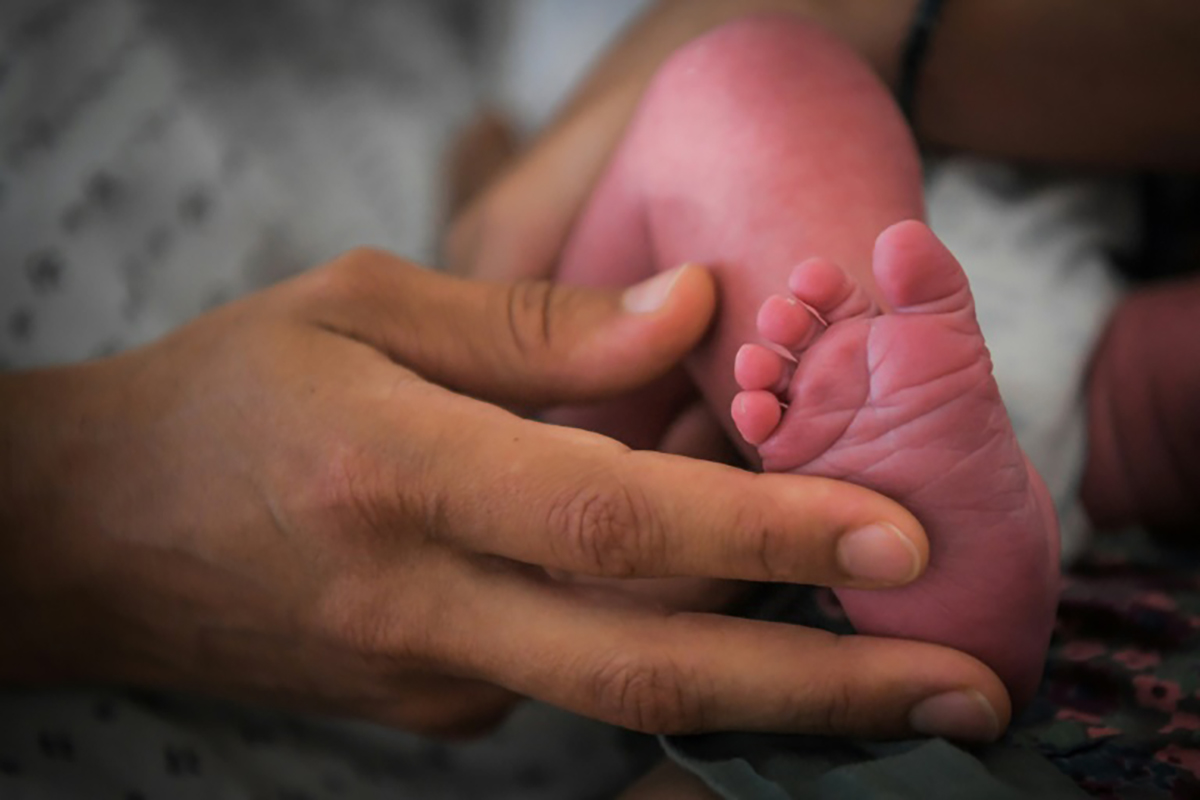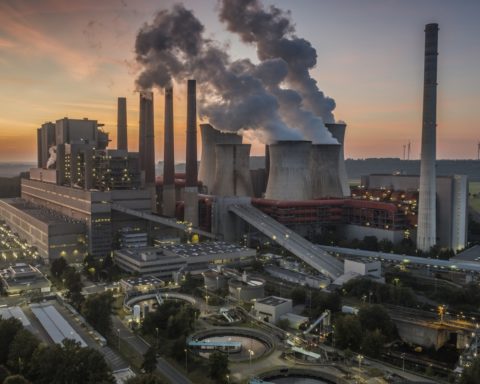Le réchauffement climatique entraîne des répercussions que tout le monde peut observer sur notre environnement immédiat et nos conditions de vie. Ce que l’on voit moins bien, c’est l’impact souvent insidieux sur la santé humaine. Parmi les victimes les plus vulnérables se trouvent les nouveau-nés, avec une étude récente mettant en lumière une augmentation significative du risque d’accouchement prématuré lié à l’aggravation des conditions climatiques.
Une nouvelle étude menée par une équipe de scientifiques australiens, qui a passé en revue 163 études sanitaires réalisées dans le monde entier, dresse un tableau extrêmement inquiétant de la façon dont les mesures de santé des enfants se sont déjà aggravées en raison du changement climatique, qui ne semble pas vouloir s’atténuer de sitôt. Les chercheurs ont ainsi révélé que le risque de naissance prématurée augmente en moyenne de 60 % en fonction des conditions climatiques. Ces conditions incluent des vagues de chaleur plus fréquentes et plus intenses, mais aussi l’augmentation des particules en suspension dans l’air et des allergènes due à des phénomènes climatiques tels que les incendies de forêt, les sécheresses et les saisons irrégulières. L’impact sur les maladies respiratoires et les résultats périnataux est alors considérable.
Liens directs entre changement climatique et santé des enfants
Corey Bradshaw, écologiste mondial de l’université Flinders en Australie, craint que le changement climatique n’entraîne des complications à vie pour des millions d’enfants dans le monde. « Nous avons analysé les données pour montrer comment certains types de phénomènes météorologiques futurs aggraveront des problèmes médicaux particuliers au sein de la population », explique-t-il. « Nous avons identifié de nombreux liens directs entre le changement climatique et la santé des enfants, le plus fort étant un risque accru de 60 % en moyenne de naissance prématurée en raison de l’exposition à des températures extrêmes.
Dans 39 des articles examinés par Bradshaw et ses collègues, il a été démontré que les changements de température avaient une incidence sur les résultats périnataux. Les naissances prématurées ont été signalées dans 29 de ces études, ce qui en fait le résultat le plus courant associé à l’exposition aux températures extrêmes ou à l’augmentation des températures ambiantes. Mais d’autres études ont également fait état d’effets tels qu’un faible poids à la naissance, des modifications de l’âge gestationnel, une rupture prématurée des membranes et même une perte de grossesse. La chaleur extrême, en particulier, est un facteur de stress significatif pour les femmes enceintes, pouvant conduire à des complications telles que la prééclampsie, qui est un facteur de risque d’accouchement prématuré.
Si les températures extrêmes ont eu le plus grand impact sur la santé des enfants, 16 des 20 études portant sur l’impact des polluants atmosphériques ont révélé qu’ils avaient au moins un certain effet sur les résultats en matière de santé des enfants. La pollution atmosphérique a un impact significatif observé par les chercheurs non seulement sur le faible poids du bébé à la naissance, mais aussi sur les maladies respiratoires du nouveau-né. Par exemple, au moins sept études différentes ont rapporté que l’augmentation des concentrations de particules en suspension dans l’air est liée à une augmentation des maladies respiratoires chez les enfants, mais aussi à un risque accru de naissance prématurée en raison de l’exposition in utero à des particules nocives. Cette exposition peut entraîner une inflammation et du stress oxydatif chez la mère, affectant le développement fœtal et pouvant conduire à un accouchement prématuré. Les scientifiques ont observé que ce phénomène coïncidait avec une augmentation du nombre d’enfants se présentant aux services d’urgence des hôpitaux pour des problèmes respiratoires. Quatre de ces études portaient spécifiquement sur la pollution due à la fumée des incendies de forêt, que nous inhalons aujourd’hui plus souvent que jamais.
Le climat influe sur les maladies infantiles
« Les problèmes de santé des enfants que nous avons identifiés dépendent des conditions météorologiques extrêmes : le froid extrême provoque des maladies respiratoires, tandis que la sécheresse et les précipitations extrêmes peuvent entraîner un retard de croissance pour une population », écrivent les auteurs. « Étant donné que le climat influe sur les maladies infantiles, les coûts sociaux et financiers continueront d’augmenter à mesure que le changement climatique progressera, exerçant une pression croissante sur les familles et les services de santé. »
Caractéristique aggravante soulignée par les chercheurs, les pays à revenu faible et moyen sont sous-représentés dans la recherche. Ce tableau sombre pourrait donc être une sous-estimation de la gravité de la situation, car la plupart des études analysées ont été menées dans des pays à revenu élevé, où les enfants sont mieux protégés contre les pires effets du changement climatique.
Les pays à faible et moyen revenu font face à une double peine en ce qui concerne le réchauffement climatique et les naissances prématurées. Ces régions, déjà aux prises avec des défis sanitaires et économiques importants, sont plus vulnérables aux effets du changement climatique en raison de plusieurs facteurs. Premièrement, les infrastructures de santé moins développées dans ces pays rendent difficile la fourniture de soins prénatals adéquats et la gestion des accouchements prématurés. Deuxièmement, la fréquence accrue des phénomènes météorologiques extrêmes, comme les vagues de chaleur et les inondations, exacerbe les risques sanitaires pour les femmes enceintes et leurs bébés. Enfin, la pollution atmosphérique, souvent plus élevée dans les zones urbaines densément peuplées de ces pays, contribue également au taux plus élevé de naissances prématurées.
Selon les chercheurs, les principaux facteurs qui protègent les enfants de la menace que le changement climatique fait peser sur leur santé sont la stabilité et la solidité économiques, l’accès à des soins de santé de qualité, des infrastructures adéquates et la sécurité alimentaire. « Le changement climatique est universel et affecte négativement tous les pays et toutes les populations, et nous devons préparer les sociétés à faire face aux menaces croissantes qui pèsent sur la santé des enfants », déclare le médecin Lewis Weeda de l’Université d’Australie occidentale.
Les auteurs de l’étude appellent à une intégration urgente de ces constatations dans les politiques de santé publique globales. Cela comprend le renforcement des systèmes de santé pour mieux répondre aux défis posés par le changement climatique, ainsi que des efforts soutenus pour réduire les émissions de gaz à effet de serre et limiter l’augmentation des températures mondiales. « L’élaboration de politiques de santé publique visant à lutter contre ces maladies liées au climat, parallèlement aux efforts déployés pour réduire le changement climatique anthropique, doit être prise en compte si nous voulons protéger les enfants d’aujourd’hui et de demain. »
Cette recherche a été publiée dans Science of the Total Environment.












